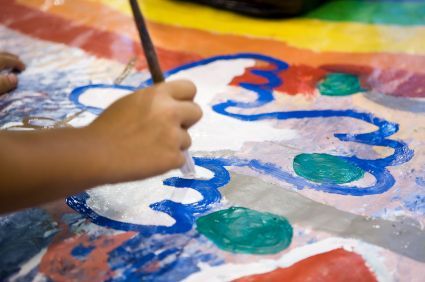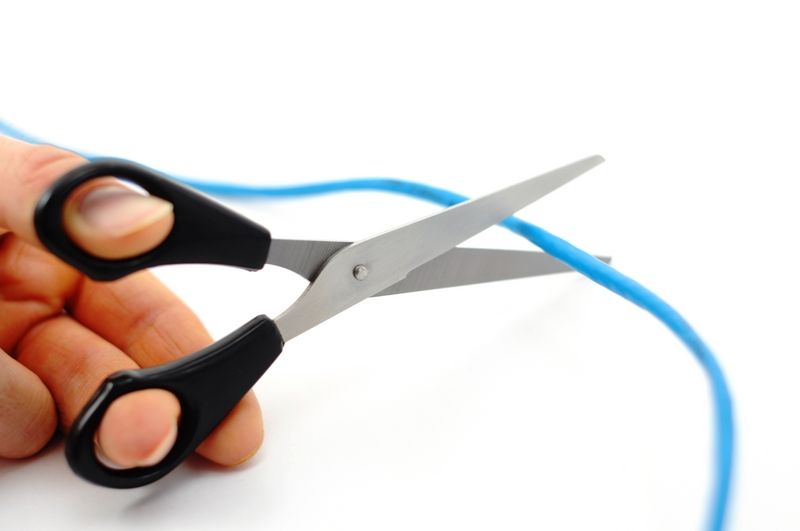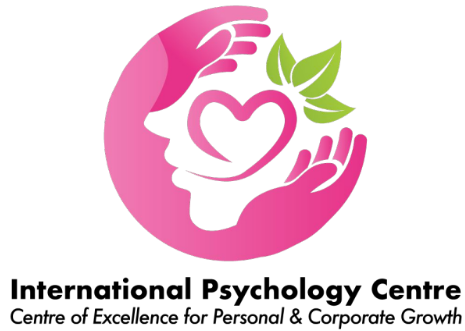Child Psychology Blog

Greetings from International Psychology Centre!
There will be a free preview of 1 hour for the International Certification Course – SANDTRAY THERAPY.
The use of sand and miniatures gives us a symbolic way of expressing our feelings and viewing our lives. Sandplay provides a fun, non-threatening approach to the unconscious, and a safe space in which to explore feelings and life situations that may feel overwhelming.
This expressive therapy provides a platform for healing and growing up for both children and adult. Sandplay heals wounds that have blocked normal development and generates positive activation of the Self.
Come learn new and exciting ways to identify psychological disorders using the principles and techniques of SandTray Therapy.
CERTIFICATION COURSE, CHILD PSYCHOLOGY
INTERNATIONAL CERTIFICATION COURSE: CERTIFICATE COURSE IN CHILD PSYCHOTHERAPY
Psychotherapy refers to a variety of techniques and methods used to help children and adolescents who are experiencing difficulties with their emotions or behavior. Although there are different types of psychotherapy, each relies on communications as the basic tool for bringing about change in a person’s feelings and behaviors.
During the class, we will guide you to understand and help those children with Anxiety, Autism, Dyslexia, Depression, Conduct Disorder and so on.
This course is accredited by Malaysian Association of Psychotherapy (MAP).
For more information on Malaysian Association of Psychotherapy (MAP), please kindly visit the following link: http://malaysianpsychotherapy.net/

凯勒(译名)今年十六岁,在吉隆坡区的某间中学就读。但自一月开课以来,他便拒绝上课。整天领着手机躲在房内与朋友透过最新的网络程序如面子书聊天室、微信、Whatsapp等聊天,变成彻头彻尾的低头族。平日的生活作息也走调,迟睡迟起之外,连吃饭的次数也从三餐减至一餐。
李女士(凯勒的妈妈)清楚知道,这习惯是源自去年十一月到十二月的悠闲假期。因此,为了不再让他沉沦,她毅然把家里的网路切断,好让他能乖乖回到学校去。但这举动显然是弄巧反拙,凯勒不但没有上学,反而把自己锁在房间,甚至用床挡住房门入口,拒绝跟任何人交流。就算饿了,他也等到全家人都外出时,或凌晨时分全部人都熟睡了,才踏出房门吃那唯一的一餐。陈女士被他这突然而来的改变给震惊了,完全对他的孤僻行为无从招架。
在这娱乐至上的年代,李女士显然不是唯一与孩子沟通出现问题的家长,反而是这个年代的代表和写照。凯勒的状况体现了这年代的孩子受到日新月异的网络与科技产品的束缚,而变得孤僻和不善于交际,就连跟至亲的沟通也显得笨拙,更不言而喻。做为家长代表的李女士对此无从下手,只好向青少年心理学家和心理治疗师求助。
寻求青少年心理学家和心理治疗师的帮助
李女士从报章上得知国际心理学中心(International Psychology Center®)提供“纠正儿童与青少年网瘾服务”后即决定预约该中心的儿童与青少年心理学部门(ChildPsych™, Centre for Child and Adolescence Psychology)。
在抵达中心后,李女士与凯勒获一队友好的心理学家和心理治疗师接待,并向他们解释整个辅导过程,让他们觉得相当安心及被受保护。首阶段治疗称为初级评估,李女士与凯勒被隔开在两间不同的房间进行不同方式的治疗。主诊心理医生将向李女士了解有关凯勒在学校与家里的行为和沟通问题;另一边则由心理治疗师对凯勒做出初级人格、思想与行为的测试和评估。
初级评估结果显示,凯勒患上了网络游戏综合症。这症状包括对电脑、手机和平板电脑等高科技产品的程序及游戏成有着上瘾和依赖等举动,简称“机不离手”。
完成初级评估后,他们感觉舒服多了,皆因有人倾听他们的痛苦、忧虑和不满,让他们感到备受尊重。当他们离开中心时,他们确实觉得比抵达时更舒坦。
**上述文稿由国际心理学中心儿童与青少年心理学部门(ChildPsych™, Centre for Child and Adolescence Psychology at International Psychology Center®)所提供。欲知详情,请致电03-27277434或电邮至Info@Psychology.com.my。同时你也可以上网浏览我们的官方网页www.MalaysiaPsychology.com,或部落格MalaysianPsychology.wordpress.com 或 MalaysiaPsychology.wordpress.com 。
3 types of Intelligences
There are 3 types of “intelligences” that each of your child and individual possesses. Most common quotients that we familiar will be IQ (intelligence quotient) and EQ (emotional quotient). However, psychologist has discovered that human have even more intelligences that is called Multiple Intelligences, according to Professor Howard Garden, from Harvard University.

The truth about IQ
IQ means a score derived from one of several standardized tests designed to measure a person’s cognitive ability in comparison to generation population at the same developmental level. Professionally, we measure IQ through a series of tests that evaluate a person’s general intellectual ability to understand ideas, to reason, distinguish relationship and solve problems. The same types of tests are applicable to children as they are to adults.
It is a standard test and 100 is the average score. Approximately 95percent of the population actually scores an IQ between 70 and 130. High IQ mean getting a higher score of 130, in return, low IQ mean a person score below 70 for the test. In past decade, many research showed that IQ scores have been shown to be related to factors such as morbidity and mortality, parental social status, and to some degree, the IQ of the child’s biological parents.
Can Your child’s IQ be changed?
But there is still debate about the significance of heritability on IQ. Meanwhile, how intelligent your child is, does not solely depend on his other DNA, but rather, the environment in which your child develops and the stimulation he/she receives is more significant factors that affects his/her IQ level. It is about how the environment and stimulation helps to connect his/her brain cells. Now as parents, in terms of developing our children’s IQ, studies have shown that 70% of brain cell connection occur when children actively engage with interact with their environment.
IQ Development programmes upon getting the IQ reports of your child after he or she has completed an IQ test, a profile of strengths and weaknesses of his or her IQ components will be revealed. John, 8 years old, IQ report revealed strength in auditory short-term memory, sequencing skills, attention span, and concentration. However his weaknesses revealed in abstract and categorical reasoning ability, mental manipulation, concentration, short-term and long-term memory, numerical reasoning ability and mental alertness. A developmental programmes which included short term memory enhancement programme , conceptualization enhancement programme and verbal comprehension enhancement programme help him to get improvement from his weaknesses. Within 3 months, there is an improvement tested on the IQ subscale and overall score. In fact, with the right psychological environment , IQ and IQ score can be improved.
Emotional Intelligence (EQ) and Emotional Intelligence Quotient (EQI).
EQ on the other hand allowed us to process and manage feelings. Emotional intelligence or EQ is a person’s ability to be aware of, control and express his/her emotions, and to be able to handle interpersonal relationships thoughtfully and compassionately. There are 5 recognized categories of EQ, they are self-intrapersonal, interpersonal, stress management, adaptability and general mood. The good news is that EQ now is measurable through a specific EQI test.
Importance of EQ in Your Child’s development
So how important is EQ in terms of your child’s development? EQ is a critical part of your child’s development because emotional intelligence affects our attitude and outlook on life. Children with good EQ learn how to manage anxiety and tend not to be depressed or have mood swings. This of course means that these children have a positive attitude and a happier outlook on life. They are also better able to communicate their feelings in a more constructive way, better able to understand the needs, feelings and responses of others, as well as being able to relate to those around them. This helps children build stronger and more fulfilling relationships. Children with higher EQ tend to possess stronger internal motivators- they push themselves towards achieving a goal. These children tend to also have better self-confidence and they are able to create and build their own network of support. When hard times be fall them, these children know what is needed to overcome setbacks, and persevere with a more resilient outlook which is focused on solving problems.
How You can increase Your Child’s EQ?
As parents, we can build our children’s EQ by being encouraging, especially in the face of disappointments. When there is a problem, ask your child for the solution- do not provide one for him/her; instead, teach your children to offer suggestions for daily household problems e.g. ask your child to suggest what you can do so that you stop misplacing your glasses all the time.
Talk to them about how they are feeling e.g. ask them what they are feeling, why are they feeling this way, what made them feel this way, do they think it is the right way to feel, say, angry etc.
The Eqi Test and EQ Development Programme for Your Child
The Eqi test enable a profile of strength and weakneeses of the different components of your child’s EQ to be identified so that the weak areas can be improved.
Adam aged 10 has his EQ test conducted and it showed weaknesses in frustration tolerance, impulse control and pessimism. A developmental programme which included frustration tolerance management, impulse control management and optimism enhancement transformed Adam from a easily frustrated child who always get into fights with other children to a happy, likeable child within less than 3 months.

Multiple Intelligence
Multiple intelligences is a theory proposed by Dr. Howard Gardner, a psychologist from Harvard University that suggests that people have different kinds of intelligences, and that intelligences is not defined solely by intellectual capabilities. These ‘multiple intelligences’ include musical-rhythmic, visual-spatial, verbal-linguistic, logical-mathematical, interpersonal, intrapersonal and naturalistic This is not to say that children only posses one type of
intelligence, rather, each individual possesses a unique blend of all the intelligences. This theory is not meant to restrict our children to only one type of modal for learning but rather, it is meant for us as parents to
explore and empower our children with all the different intelligences.
Children with High Multiple Intelligences have greater successes
Children who are able to use their multiple intelligences are able to be more adaptive in terms of expressing, communicating with others and solving life’s complex problems.
New generation of Children with low Multiple Intelligences
However, there is a much reduced opportunities for children to develop their multiple intelligences in today’s environment which focus on academic performance and technology gadgets.
The Nature Multiple Intelligence Children and Teenage Camp
The team of professional child and educational psychologists at ChildPsych, Centre for Child Psychology of the International Psychology Centre has developed a Nature Multiple Intelligence Children & Teen Camp (RANIC) to help children appreciate and use nature to develop their multiple intelligences. The activities which will be conducted in RANIC camp include observing colourful photos of nature, giving the descriptions of the animals and plants of the photos; identifying and discovering real life exotic rainforest plants, exotic colour dart frogs and other animals identified from the photos. Camp participants will learn how to create written, artistic, musical, and verbal descriptions of the identified animals and plants, through the medium of verbal stories, songs, music, movements, arts and symbols, thereby exercising and developing their multiple intelligences. Your child will also learn how to share with other children and teenagers their creation, thereby enabling them to reinforce their creative, artistic, musical, movement, verbal, nature, physical, emotional, social and interpersonal intelligences.
This article is contributed by ChildPsyTM, Centre for Children and Adolescences Psychology of International Psychology Centre’s team of psychologist. Contact them at International Psychology Centre Sdn Bhd, 11-1 Wisma Laxton, Jalan Desa, Taman Desa, 58100 Kuala Lumpur. Call: 03-27277434, email :info@psychology.com.my or log on to Malaysiapsychology.com.
羽坚是个品学兼优的中三生,但是个性比较内向,跟同学间也缺乏交流。平时也没有特别的爱好和兴趣,也不活跃于学校的课外活动。升上了初中三,他的成绩突然改变,原本是全校成绩一直都名列前茅的佼佼者,竟然在每三个月一次的校内评估考试成绩一落千丈。在全国初中评估考试(PMR)中更考获全乙等的成绩。
这样的结果确实让人难以接受,包括他自己,但这一切都跟羽坚这三年来的成长环境息息相关。在朋友的眼中,他是个一无是处的书呆子;整天都对着课本和参考书,就连下课时间都经常远离人群,一个人在角落温习或发呆;在家里,他把时间都花在读书和温习,鲜少与家人交流,更谈不上一起外出用餐或逛街了。一开始羽坚的父母都一致认为这是好孩子应有的样子,连亲戚和邻居都称赞羽坚是个好孩子,纷纷嚷着要自己的孩子视他为榜样,长大后便可成才!
但当羽坚开始上课不专心,成绩也开始滑落,身为母亲的江女士便开始察觉到不妥。她发现羽坚开始养成夜睡的习惯,甚至早上不愿意起床上学。江女士发现,羽坚的生活变得急躁;赶上学、赶吃饭、赶补习,一切都为了争取时间躲在房里自习。每天晚餐后,江女士透过门缝发现羽坚都埋头苦干,无论是应考期间或平时,他的房间都布满着笔录的纸条和练习簿。她担心羽坚读书压力过大,于是便提议带他外出闲逛透气,但他都一一拒绝。
无奈的是,无论羽坚付出多少的努力,最终成绩还是差强人意。他开始变得自卑,更不愿意跟人交流,哪怕是简单的问候,他都听而不见。于是,在学校的辅导处介绍之下,江女士和羽坚来到了国际心理学中心的儿童与青少年心理学部门(ChildPsych™, Centre for Child and Adolescence Psychology at International Psychology Centre)接受首阶段治疗(Initial assessment)。
经过首次的初级评估后,专业儿童与青少年心理学医生陈永乐医生发现,羽坚患上的是学习综合症,这症状包括自卑、缺乏专注力、不信任、焦虑及健忘等。羽坚之所以会患上学习综合症,是因为在他小时候,父母亲都不允许他发问。哪怕是简单的日常问题如为什么鱼在水里游,树有没有生命,哪个国家拥有最多人等,羽坚的父母都拒绝回答,甚至严厉的告诫他不许问这些无聊的问题。羽坚意识到发问这举动只会得到严厉的告诫和忽视,日积月累,渐渐地他便不再发问,也不晓得如何发问了。
“现下的父母都因为忙碌而忽略了孩子的成长。很多时候就因为在工作上受到太多的质问,而产生对问答的抗拒感;回到家中面对‘问题小孩’,抗拒感油然而生。渐渐地,便疏远了亲子关系,甚至影响孩子长期的智力成长。”陈医生进一步解释,当孩子的好奇心受到强大的抗拒感的压抑,到最后将会导致孩子失去思考及判断能力,难免沦为背书机器。
陈医生建议父母多跟孩子交流,让孩子自由发问,并提供正确的答案。这个小小的举动不但能协助孩子对世界有进一步的认知,也对自己的发言多一份自信。那么就可以孩子提升智力与自信,避免成为书呆子。
**上述文稿由国际心理学中心儿童与青少年心理学部门(ChildPsych™, Centre for Child and Adolescence Psychology at International Psychology Center®)所提供。欲知详情,请致电03-27277434或电邮至Info@Psychology.com.my。同时你也可以上网浏览我们的官方网页www.MalaysiaPsychology.com,或部落格MalaysianPsychology.wordpress.com 或 MalaysiaPsychology.wordpress.com 。
ADDICTION THERAPY, CHILDPSY, EDPSY, FAMILY THERAPY
SOCIAL MEDIA ADDICTION LOWERS SOCIAL INTELLIGENCE OF YOUR CHILDREN & TEENAGERS ACCORDING TO PSYCHOLOGISTS

Hayden (name changed), a 16year old boy, has stopped going to school and isolated himself in his room since the recent Chinese New Year hooked on using the smartphone chatting on Facebook, WeChat & Whatsapp. The mother then decided to cut off the internet connection of his phone due to a costly internet data used. He locked himself in room for the whole day long, even blocked the door with his couch to avoid anyone coming in, especially his mother. He would only step out from his room for having any meal when everybody has gone. His mother, Cecilia (name changed) then started to approach him for a face-to-face discussion. But this good intention has been rejected by Hayden and he refused to talk at all. The school has been questioning Cecilia for his long period of absence, and even the grandparent was very worried about his situation. They came down from Perlis, the hometown, purposely to meet him, but Hayden still did not come out to meet them. Cecilia was shocked by his social withdrawal behavior for he refused to meet anyone even his close and beloved grandfather.
Cecilia is not alone in having this communication problem with her children. There are many parents who are also facing the same problem as they found it hard to control their children’s social media, phone, and internet addiction. Cecilia was anxious and very worried about her son’s future development but they felt helpless in this situation. Therefore, Cecilia was referred to International Psychology Centre by Hayden’s school counselor, who was able to recognize his social media addiction.
Cecilia called up ChildPsychTM, the Child Psychology division of the International Psychology Centre® to make an appointment for an initial assessment. The assessment revealed diagnosis that Hayden was suffering from the withdrawal symptoms within the profile of Addiction, specific to Internet Addiction, which included social media & gaming addiction. According to DSM-V, a psychological diagnostic manual, this psychological disorder might affected your child’s behaviour, emotion, social communication, and academic performances.
A programme of child social media addiction psychotherapy which utilised nature, emotional and social intelligences (as discovered by Howard Gardner, department of Cognition and Education of Harvard University) was prescribed for Hayden. Social & Emotional Intelligence Therapy was part of this programme and it is an innovative therapeutic framework that takes place through the direct and creative dialogue through various natural direct activities and thereby developed other multiple intelligence including interpersonal intelligence, and intrapersonal intelligence such as stress management, problem solving and reality testing skills. The direct natural activities include storytelling, nature exploration, arts expression and sandtray symbol work.
The International Psychology Centre is staffed a team of professional child and educational psychologists trained in using different effective psychotherapeutic techniques to help children and teenagers overcome their social media addiction and strengthen their emotional intelligences as well as developing their multiple intelligence. The centre is also equipped with nature rainforest vivariums with live exotic plants and animals such as colourful dart frogs which helped children to reconnect back to nature through different engaging active activities for building their nature and multiple intelligences in place of internet and social media addictive behaviours.
Dealing with Social Media Addiction and Low Emotion and Social Intelligences Children; a Common Child Issue of the New Era
Facebook was discovered by Mark Zuckerberg because he was too socially anxious to interact with his peer at university. Children and teenagers and even adults using Facebook and other social media applications can over rely on them to compensate and reinforce their weaknesses in their social and interpersonal skills.
Common scenes at public cafe and restaurant would reveal family having meals in silence while their children are preoccupied with social media checking and chatting with their phones.
Hayden represented a whole generation of children who in material terms have far more than any other children who have ever lived. Will this generation ever build a tree-house, make a little dam in a river, or try to knock a can off a wall at ten yards and also if they would ever do any of those things with their family. “We are so busy giving our children what we did not have, that we do not have the time to give them what we did have” said Dr WengLok Chan, Principal Consultant Child Psychologist of ChildPsych™, Centre for Children and Adolescences Psychology of the International Psychology Center® (MalaysiaPsychology.com).
After several sessions of Family Therapy as well as Child Psychotherapy, communication between Hayden, Cecilia, Dave (Hayden’s father) and Natalie (Hayden’s sister) was established and Hayden’s family was able to enjoy good engaging communication with him again. Cecilia felt that Hayden was caring for the family for the first time whereupon he spent time playing with his younger sister and even cooked for the family. Hayden rediscovered the pleasure of doing active, simple natural activities rather than spending most of his time on his phone with the various social media applications with people that he does not really know him, and with whom he does not have any physical interaction and do not care for him.
“The problem of social media addiction is not the addiction itself, but the reason for the addictive behaviour. Once we are able to help your children and teenagers to deal with the anxieties and problems they face, such as social anxiety and family communication problems, they will be able to reverse their addiction behaviour,” said Dr WengLok Chan, who is also the president of the Malaysia Association of Psychotherapy (MalaysianPsychotherapy.net).
This article is contributed by ChildPsych™, Centre for Children and Adolescences Psychology of International Psychology Centre®’s team of psychologist and psychonutritional therapists. Contact them at the International Psychology Center Sdn Bhd, 11-1 Wisma Laxton, Jalan Desa, Taman Desa Kuala Lumpur. Call 03-27277434, e-mail info@psychology.com.my or log on to www.malaysiapsychology.com or http://malaysiapsychology.wordpress.com or www.malaysianpsychology.wordpress.com.

ADDICTION THERAPY, CHILDPSY, FAMILY THERAPY
BREAK DOWN IN FAMILY’S COMMUNICATION; IMPORTANT OF NATURE AND MULTIPLE INTELLIGENCE
Jack (name changed), a 14year old boy, always locked himself in his room, and stayed in front of the computer all night and most of the day. His parents, Susan and James (names changed) found that it was very hard to communicate with him. Susan set up a timetable to limit Jack using the computer, but he was hardly able to follow the timetable, and if the computer was locked by his parents, he would go to the nearest internet cyber café and would only be back at midnight. Susan and James would like to talk to Jack but it was very difficult for them to have a quality talk with him.
Susan and James also received letters from his school regarding Jack’s poor school performances. Jack did not pass up any homework, he slept in class, and did not pay attention in class. He would only show interest when his friends talk about computer games.
Susan and James are not alone in having this communication problem with their children. There are many parents also facing the same problem as they found it hard to control their children’s computer addiction. Susan and James were very concerned about their child’s future development but they felt helpless in this situation. Luckily, Susan was referred to International Psychology Centre by Jack’s doctor, who was able to recognize his computer addiction.
Susan then called up ChildPsychTM, the Child Psychology division of the International Psychology Centre to make an appointment for an initial assessment. The assessment revealed diagnosis that Jack was suffering from symptoms within the profile of Addiction, specific to Internet Gaming Addiction. According to DSM-V, a psychological diagnostic manual, this psychological disorder might affect Jack’s behavior, emotion, social communication, and academic performances.
A programme of child psychotherapy which utilised nature and multiple intelligences (as discovered by Howard Gardner, department of Cognition and Education of Harvard University) was recommended for Jack. Nature Therapy (Ronen Berger, founder and head of Nature Therapy Centre, Israel) was part of this programme and it is an innovative therapeutic framework that takes place through the direct and creative dialogue humans have with nature and thereby developed other multiple intelligence including emotional intelligence, interpersonal intelligence, and social intelligence.
At International Psychology Centre, it is equipped with nature rainforest vivariums with live exotic plants and animals such as colourful dart frogs which helped children to reconnect back to nature through activities for building their nature and multiple intelligences.
Children with Low Emotion and Social Intelligences of Our Generation
Dr WengLok Chan, Principal Consultant Child Psychologist of ChidPsychTM, followed up the child nature multiple intelligence psychotherapy with a family therapy session at Jack’s home. He found Jack in the garden with his hand holding a small, square box. In it he had put in some leaves and six caterpillars he had found.
As Dr. Chan approached, Jack lifted the lid gingerly, as if to prove the size of the haul, counted them out aloud. He was so amazed when Dr. Chan told him story of what caterpillar can become, and he did not mind when Dr. Chan asked him to release them to the wild.
Jack represented a whole generation of children who in material terms have far more than any other children who have ever lived. Will this generation ever build a tree-house, make a little dam in a river, or try to knock a can off a wall at ten yards and also if they would ever do any of those things with their family. “We are so busy giving our children what we did not have, that we do not have the time to give them what we did have” said Dr. WengLok Chan.
After several session of Child Nature Multiple Intelligence Psychotherapy, Jack’s behaviour and attitude changed significantly. Jack is now able to follow the timetable that was set by his parents, and he was starting to catch up in his school’s academic performance. Jack would not stay in front of the computer all night, and most importantly, Jack’s parents is now able to have a quality talk and communication with him; they now have good quality times during weekends. Jack is able to focus on his study again, has good relationship with his friends, and he can spend time talking engagedly with his family.
“The problem of the internet gaming addiction is not the addiction itself, but the reason for the addiction behavior. Once we are able to help children to deal with the anxieties and problems they face, they will be able to reverse their addiction behavior,” said Dr WengLok Chan, Principal Consultant Child Psychologist of ChildPsych™, Centre for Children and Adolescences Psychology.
This article is contributed by ChildPsych™, Centre for Children and Adolescences Psychology of International Psychology Centre’s team of psychologist and psychonutritional therapists. Contact them at the International Psychology Center Sdn Bhd, 11-1 Wisma Laxton, Jalan Desa, Taman Desa Kuala Lumpur.
Call 03-27277434, e-mail info@psychology.com.my or log on to www.malaysiapsychology.com or https://www.facebook.com/ChildPsychologyMY or http://malaysiapsychology.wordpress.com or www.malaysianpsychology.com.
Jack, 14 years old, was caught by his collecting lady’s underwear. After finding a pair of lady’s underwear under his bed he was scolded by his mother for keeping them. It is hard to say how, exactly, his fetish began but it started as early as Jack was thirteen. Mother promptly took away the underwear and beat her son for having them. By the further investigation, mother was surprised that the underwear which Jack kept actually was stolen from his elder sister. But this happened again and again. Jack was found to be keeping a few pieces of his elder sister and aunt’s underwear under his bed and there was stained with semen.
The parents, Mr and Mrs Ong are about to give up and didn’t know how to help themselves and their son when Mrs. Ong called up International Psychology Center to arrange a consultation appointment for her son (www.psychology.com.my).
The team of professional child psychologists at the Child Psychology Centre (http://www.psychology.com.my/Child-Psychology-Counselling/) in International Psychology Centre did Initial Assessment for Jack.
The assessment revealed diagnosis that Jack was suffering from a psychological disorder called as Fetishistic Disorder which specific to underwear. Indeed, he is suffering from Underwear Philia which is addiction to underwear of opposite sex. According to DSM-V, a psychological diagnostic manual, this psychological disorder might affect Jack’s behavior and social communication.
“Philia” meaning ‘attraction’. These are disorder in which an individual has recurrent, intense sexually arousing fantasies, sexual urge or behavior involving non-human object over a period at least 6 months such as shoes, glove, underwear and stocking. They do unusual action to the desired object, like sucking, smelling, fondling, rubbing, cutting and masturbating. They would like to masturbate to the desired object rather than relating normally to the opposite sex. Fetishistic Disorder is a psychological disorder and it may cause harm to other people or cause an individual to experience persistent or recurrent distress and affect important areas of functioning.
People with Underwear Philia are always obsessed carrying with their unusual behavior. If the individual cannot get to their desired object, they get stressed, have impairment in study, or weak social relationship and other important areas of functioning.
Sex addiction psychotherapy based on the results of Jack’s psychological assessment was developed to help Jack overcome his abnormal sexual behavior. Furthermore, a team of psychonutritional therapists at the Psychonutritional Division (http://www.psychology.com.my/psycho-nutritional-therapy/) at the International Psychology Center works with the Child Psychologists to conduct diagnostic laboratory tests to assess the biochemical causes to his abnormal sexual behavior such as Neurotransmitters test and Hormone test including sexual hormones.
The Psychonutrional therapy was develop tailored to Jack’s lab results which included balancing, deficient neurotransmitters such as Dopamine, the neurotransmitter needed for sexual arousal. Jack’s symptoms will be helped with natural psychonutritional supplements such as Dopamine Precursor, L-Theanine (Extract from Green Tea) which do not provide any side effect such as addiction and liver toxicity effects that may accompany psychotropic drugs.
With a combination of sex addiction psychotherapy and psychonutritional therapy, Jack’s symptoms were able to be reversal successfully. Jack was able to focus on his study again, having good relationship with friends, relate to elder sister normally, and have enjoyable time with his family.
“The problem of the underwear addiction is not an addiction itself, but the reason for the addiction behavior. Once we are able to help patient to deal with the anxieties and problems they face, they will be able to reverse the addiction behavior,” said Dr WengLok Chan, Principal Consultant Psychologist of PsyCare™, Centre for Personal Psychology of International Psychology Centre.
For more information, please visit:
Website: www.psychology.com.my
Facebook:http://www.facebook.com/dredward.chan
Twitter: http://twitter.com/#!/msiapsychology,http://twitter.com/#!/DrEdwardChan
Blog: https://malaysianpsychology.wordpress.com/
Telephone: 03-27277432
Sandra and Paul (not their real names) found it difficult to handle their son, Alex. Alex is an 8-year-old boy who has had attention problem since his preschool. Sandra and Paul never notice their son’s attention problem was serious until his second grade of primary school. They tried to send him to a tuition centre to enhance his studies and his attention. Unfortunately, it worsened Alex’s attention.
At home, Alex could not do his homework without his parents’ assistant regularly. He always easily gets distracted by the television sound and vehicles sound. His parents felt it was very hard to get him to concentrate on his homework. They needed to spend long hours with him to get his homework done. However, the homework always ended up messy and disorganized. They related to do was to shout, scold and even cane him until Alex focused on his homework or studies.
The parents always received calls from the school complaining about their son’s attention problem during class, studies and even homework. In school, the teachers were struggling with Alex’s difficulties. Alex was very quiet and did not talk to any of the students from his class. When the teacher tried to teach him personally, he doesn’t pay any attention to the lessons. He always get confused and constantly daydream during the class. Sometimes, he would just totally ignore the teacher and forgot what the teacher had taught him or told him.
Sandra and Paul are not alone in our society. They are many parents having the same problem as them and finding it hard to understand and manage their child’s lack of attention. They are also concerned about their child’s development in the future years.
His parents started to run out of ideas on how to deal with their son’s attention problem. They sought information from the internet and social media on how and who can deal with their son’s attention problem. They found ChildPsych™ the Center for Children and Adolescence Psychology (www.psychology.com.my) was able to help with their son’s problem. The mother called them up to arrange an appointment for her son.
Firstly, the child psychologist interviewed them on the child’s background and developmental history. They wanted to know how Alex was growing up so that they could have better understanding on his situation. Then, they had another session with Alex to assess him for his behavior and attention problems.
After the assessment done, the psychologist had initially directly revealed that their son may be suffering from a developmental disorder called as Children with Attention Deficit Disorder (ADD without Hyperactivity) that affected Alex’s behavior, attention, and learning.
Attention Deficit Disorder (ADD) is a psychological disorder or neuro-developmental behavioral disorder characterized by significant difficulties only on inattention. This include, easy distraction, missing details, forgetting things, and frequently switching from one activity to another, having difficulty maintaining focus on one task, became bored with a task after only a few minutes,
unless they are doing something enjoyable. They have difficulties focusing attention on organizing and completing a task or learning something new or trouble completing or turning in homework assignments, often losing things (e.g., pencils, toys, assignments) that are needed to complete tasks or activities, not seeming to listen when spoken to, daydreaming and become easily confused. They also have difficulties processing information as quickly and accurately like other normal children and struggling to follow instructions.
Psycho-educational therapies based on the results of Alex’s psychological assessment were developed to help Alex to overcome his poor attention behaviors. Furthermore, a team of psycho-nutritional therapists at the Psycho-nutritional Divisions at the International Psychology Center works with the Child Psychologist to conducted diagnostic laboratory tests to assess the biochemical contribution to his poor attention behavior such as Neurotransmitters, leaky gut, stool tests and also food intolerance and allergy test.
The Psycho-nutritional therapy was developed and tailord to Alex’s lab results and this included balancing, deficient neurotransmitters with natural nutritional supplements such as Bacopa, Polyunsaturated Phosphatidylcholine and Theanine. Alex’s therapy consisted of the psycho-educational therapy as well as the psycho-nutritional therapy based on both the professional psychological and psycho-nutritional lab test conducted within 6 to 12 sessions of this therapeutic programme, Alex is able to manage his behavior with his parents assistance resulting in dramatic reduction of complaints by teachers of inattention behavior at school. More importantly Sandra and Paul are now able to enjoy their relationship with their son and their family life again as they no longer to use negative punishment for their son’s inattention behavior.
For more information, please visit:
Website: www.psychology.com.my
Facebook:http://www.facebook.com/dredward.chan
Twitter: http://twitter.com/#!/msiapsychology,http://twitter.com/#!/DrEdwardChan
Blog: https://malaysianpsychology.wordpress.com/
Telephone: 03-27277432
Jim, is a nine year old boy. He is a normal boy in every sense of the word except for one small difference. He has great difficulty when it comes to reading and doing math. The issues has always been with him and it has indeed caused him a lot of pain over the years. He was often ridiculed by his peers at school and they used to call him names like “stupid” and “useless”. No matter how hard he tried to read and do math, he just could not seem to improve at it. Word looked like dancing spaghetti to him and numbers were like dancing pasta all laughing at him. However, there was one beacon of hope he could turn to, his mother. His mother would patiently sit by him and try to teach him and coach every night, but even she was running out of ideas. No matter how hard she tried, Jim just did not seem to get it. Maybe he’s a little slow, she thought. Maybe I need to send him to the special school, she thought. It was bothering her day and night. What am I going to do about my son, she thought. No matter how hard I try he just does not seem to get it and he is trying, I can see it, but somehow he just not get it. She was about to give up and lose hope, when she heard about the International Psychology Centre and there was an article there describing a case of a boy who was having the exact same symptoms as her son, no matter how hard he tried, reading and doing math was just beyond him, so she decided to take a chance and she called them up to arrange an appointment for her son, Jim.
When she arrived at the EdPsych, the Centre for Educational Psychology at the International Psychology Centre, she was surprised. It did not look like a clinic. The music was so calming and the atmosphere really put one at ease. Her hope increased. Maybe these guys would know how to help my son, she thought. The educational and child psychologists were there to welcome her and told her that they would be able to her son overcome his issues. They were so nice and pleasant, she thought. First, they interviewed her to get an idea about the child’s background and developmental history. They wanted to know how he was growing , so that they could better understand his current situation. Then , they had a another session with her son, Jim directly to assess him for any learning or development delays, they said. She was so worried to see her son go, but they assured her that he would be alright. But still, she was worried as she waited for the results of the assessment in the waiting room. The minutes on the clock seem to have frozen in time as she waited, but still she waited. Finally, the psychologist reappeared from the assessment room with her son Jim and she was so elated to see him. He looked so happy and this made her very happy. Then, she turned to the psychologist and looked at him with hopeful eyes, waiting for him to say something. When he spoke, he told her that her son may be suffering from a specific learning disorder called dyslexia. She had never herd of it and her heart sank. “Oh my god, there’s something wrong with my son, she thought”, but the psychologist could see the worry on her face and he reassured that though he may have difficulty with reading and math now, it it because he processes this information in a different way and he assured her that they would be able to help him overcome this by teaching him how process this information effectively and efficiently so that he can excel and would not have to be teased anymore. Immediately, she felt her heart jump and she thanked the psychologist for his reassurance and left the centre that day feeling reassured and hopeful.
Dyslexia is difficulty in learning to read fluently and with accurate perception and processing. This includes difficulty with phonological awareness, phonological decoding, processing speed, orthographic coding, auditory short-term memory, language skills/verbal comprehension, and/or rapid naming. It is believed that dyslexia can affect between 5 and 10 percent of a given population although there have been no studies to indicate an accurate percentage. There are three proposed cognitive subtypes of dyslexia (auditory, visual and attentional), although individual cases of dyslexia are better explained by specific underlying neuropsychological deficits and co-occurring learning disabilities (e.g. attention-deficit/hyperactivity disorder, math disability, etc.). Reading disability, or dyslexia, is the most common learning disability. Although it is considered to be a receptive language-based learning disability in the research literature, dyslexia also affects one’s expressive language skills.
Psychoeducational therapy based on the results of the psychoeducational assessment was developed to help Jim overcome his specific reading and math difficulties. Furthermore, a team of psychnutritional therapists at the International Psychology Centre also conducted diagnostic laboratory tests to assess the biochemical contribution to his learning disorders such as the neurotransmitter urine and gut dysbiosis stool test. Based on these results, a programme of psychonutritional therapy including balancing deficient neurotransmitters with natural nutritional supplements together with the few sessions since the first session has really helped Jim. Indeed, Jim’s mother has been able to notice the difference in her son. He is now able to read and do some simple maths and the psychologist there say that with a few more sessions there he would be able to catch up with his peers in school. She was so delighted to hear that and is grateful that she took that fateful step of taking a chance and seeking professional help for her son.
Website: www.psychology.com.my;
Facebook:
http://www.facebook.com/psychologyasia
http://www.facebook.com/dredward.chan
http://www.facebook.com/IPC Kuala Lumpur
Twitter:
http://twitter.com/#!/msiapsychology
http://twitter.com/#!/DrEdwardChan
Blog: http://malaysiapsychology.wordpress.com/
Tel: 03-27277432
Critical thinking, this is often defined as the ability to think critically about something, which means to decide using our logic and knowledge that we have whether or not a particular claim is true or not. In more scholarly terms, it is the reflective reasoning ability in individuals. This is the ability we use when we decide whether a particular advertisement’s claims are true or otherwise. We use our database of previous knowledge and experience to assess whether this new knowledge seems sensible or logical, whether it makes sense or is utter nonsense. Often, this is touted to be a more ‘scientific’ ability which ‘smart’ individuals who use scientific thinking are masters of, and unfortunately anything that might appear ‘unscientific’ is not granted this privilege. But, new research is proving this otherwise. It is showing us that even infants who we look at as only being playful and carefree, actually are also masters of this ability in their own way. This so-called natural ability to be critical thinkers is called ‘critical thinking aptitude’ and new research is showing us that there are new and effective ways to test this, even from an early and tender age.
One such way to test this ‘critical thinking’ aptitude is called the Weschler Intelligence Scale for Children or WISC for short. It is perhaps one of the most well-known and well accepted measures of aptitude that has been validated and proven to be highly effective at testing a child’s natural ability(aptitude) in a variety of skills, one of which is critical thinking. The WISC in itself is a combination of a variety of subtests which measure a great variety of cognitive skills and abilities. Not all measure critical thinking, but there are a few key subtests as they are called which really zoom in on this ability of critical thinking. Particularly, the Similarities subtest measures critical thinking by testing to see whether a child is able to see the logical relationship between two objects which require critical thinking skills as the child is required to assess and logically decide the similar characteristics of the 2 objects. There are also other subtest which measure critical thinking aptitudes such as the Matrix Reasoning subtest which I am sure most you are familiar with, it is the test where there are 3 abstract designs and the child is required to choose a fourth design that fits the sequence. This is perhaps one of the most straightforward and direct measures of critical thinking ability as the sequences are purely logical and only through logical thinking will the child be able to figure out the puzzle. There are many other subtest on the WISC which also measure critical thinking, but for the sake of this articlewe shall limit our discussion to these particular subtest. Of course, critical thinking skills is indeed a very important skillset that most children do have some competence in. But a host reasons, some children may be naturally more adept at these skills as compared to others. So how can we help those who are lagging behind? How can we help them catch up with their more advanced peers in the area of critical thinking in particular?
Well, there are a variety of ways, but one way which has been shown to be effective is through the use of psychotherapy, and in particular child psychotherapy which is the branch of psychotherapy that handles issues related to children in particular. Psyhcotherapy is a very practical field and it relies strongly on the use of practical and ‘situational’ learning if you like. So, in a typical psychotherapy session designed to encourage critical thinking skills in children, you might see therapists acting in a role play with child and perhaps some assistants which are designed to give the child a chance to experience critical thinking in a ‘real life’ situation and see how it is applied and used to solve and address everyday problems. This is just one of the methods that are often employed in child psychotherapy and there are many more in the psychotherapist’s bag of tricks. So what if a child does not develop critical thinking skills? What will happen to a child who continues to lag behind in this area? Well, there could be a variety of issues that may arise, but perhaps some of the more commons ones would be depression due to a repeated inability to assess situations successfully leading to unsatisfactory relationships and choices. So, there are many issues that could arise, but the key is in assessing a child critical thinking skills early and helping the child overcome any deficiencies in critical thinking early to prevent any future difficulties or issues for the child.
For more information, please visit:
Website: www.psychology.com.my
Facebook:http://www.facebook.com/dredward.chan
Twitter: http://twitter.com/#!/msiapsychology,http://twitter.com/#!/DrEdwardChan
Blog: http://malaysianpsychology.wordpress.com/
Telephone: 03-27277432






